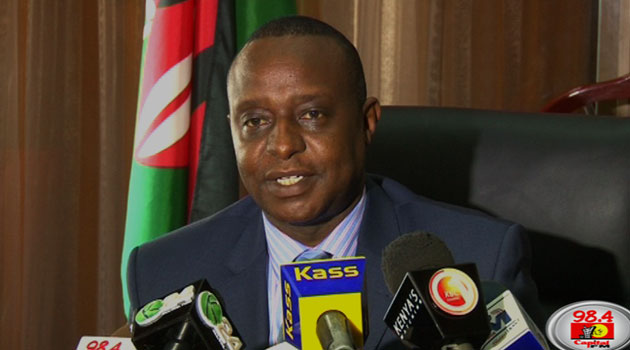
According to the Cabinet Secretary, the government has already approved 71 project proposals which cut across various sectors and county governments. Photo/ FILE
NAIROBI, Kenya, Jun 29 – Kenya’s infrastructure funding gap currently stands at Sh178.5 billion per annum.
National Treasury Cabinet Secretary Henry Rotich said that the huge financial requirement cannot be funded by the government alone hence it is targeting Public Private Partnerships (PPP) to fund infrastructure projects.
“The government hopes to achieve the benefits of successful Public Private Partnership investments which include substantial private investment, improving access to infrastructure and sharing of risk with the private sector,” Rotich said.
According to the Cabinet Secretary, the government has already approved 71 project proposals which cut across various sectors and county governments.
These include the Kenyatta University and Africa Integra’s 10,000-student hostels project commissioned earlier this month.
It is also set to construct about 10,000km of road through annuity which is a Public Private Partnership with the first batch of kilometres to be undertaken by such a partnership launching soon.
And the government has made sure that the partnerships thrive while making notable accomplishments.
Speaking during the official opening of this year’s skills development training on public private partnerships, organised by Expertise France, African Legal Support Facility (ALSF) and Corporate University of the Agence Francaise de Developpement (CEFEB), Rotich said that the government has created institutions to support Public Private Partnerships agendas in the country.
These include the PPP Committee which approves projects, the PPP Petition Committee which adjudicates petitions and listens to complaints and the PPP Unit which is a national centre and guardian for PPP expertise and processing.
More so, the government is working towards increasing private investment in infrastructure sector and generating a pipeline of profitable public private partnerships that include the PPP Project Facilitation Fund and Fiscal Risk Analysis and Management.
The Public Private Partnerships however grapple with various challenges.
According to ALSF’s Principal Legal Counsel Maude Vallee, identifying high-quality projects that meet the country’s development strategy, while being attractive and potentially profitable to investors is one of the biggest challenges.
Also, lack of technical expertise and legal capacity, lack of relevant legal tools and sufficient knowledge of good practices and inappropriate or inadequate institutional and legal frameworks are also major challenges.
The weeklong training, which brings together 30 representatives from Djibouti, Gambia, Malawi, Mauritius, Zimbabwe and Kenya among others, will cover topics that include different contracting models, guiding principles for structuring project funding and financial control of a Public Private Partnership among others.



































